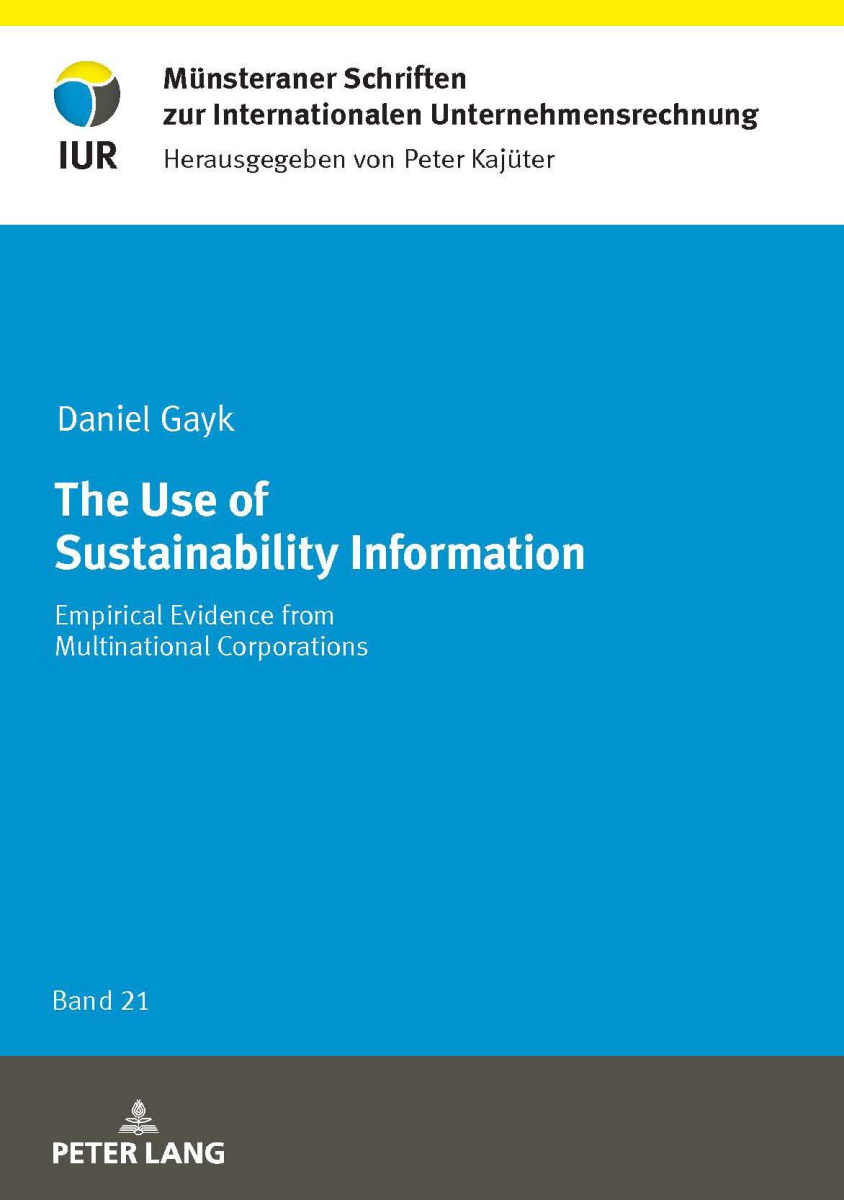Band 21
Daniel Gayk - The Use of Sustainability Information - Empirical Evidence from Multinational Corporations

Numerous multinational corporations (MNCs) set themselves ambitious sustainability goals. Stakeholders such as employees, customers and investors increasingly expect MNCs to improve not only their economic, but also their environmental and social performance. Achieving these sustainability goals, nonetheless, is affected by how employees use sustainability information within their decision-making.
Despite this high relevance in practice, the literature does not sufficiently analyze the use of sustainability information at MNCs yet. In particular, the important perspective of the individual information users has been largely neglected in prior studies. Several calls for respective research further affirm this notion of a ‘black box’.
Therefore, this study investigates the use of sustainability information at MNCs and explores its influencing factors. The empirical analysis grounds on interviews with 43 users of sustainability information at four MNCs. In detail, grasping the perspectives of top executives, sustainability managers, management accountants, and employees from various functional areas generates new insights into sustainability information use at Western European headquarters as well as subsidiaries of MNCs across the world.
The empirical results reveal that sustainability information is used in many different ways. As opposed to corporate intentions, employees often do not use sustainability information for evaluating alternative decision-making options such as input materials or suppliers. Instead, employees are found to primarily use sustainability information for documenting environmental and social impacts to ensure legal compliance and mitigate risks. This study identifies and explicates several factors which influence the use of sustainability information at MNCs. For instance, dedicating employees to sustainability management is found to be important as it enhances the quality of collected information. This is relevant because using sustainability information for decision-making purposes requires precise information. Furthermore, the results suggest that a specific focus needs to be set on the individual information users. More specifically, employees are sensed to use sustainability information in a way that will probably cause positive consequences such as appreciation by colleagues or superiors.
This study provides several contributions as it extends the sustainability management as well as management accounting literature and creates multiple opportunities for future research. The findings have important implications for practitioners such as top executives, sustainability managers and management accountants at MNCs. This especially applies to MNCs which aim at achieving ambitious sustainability goals.


